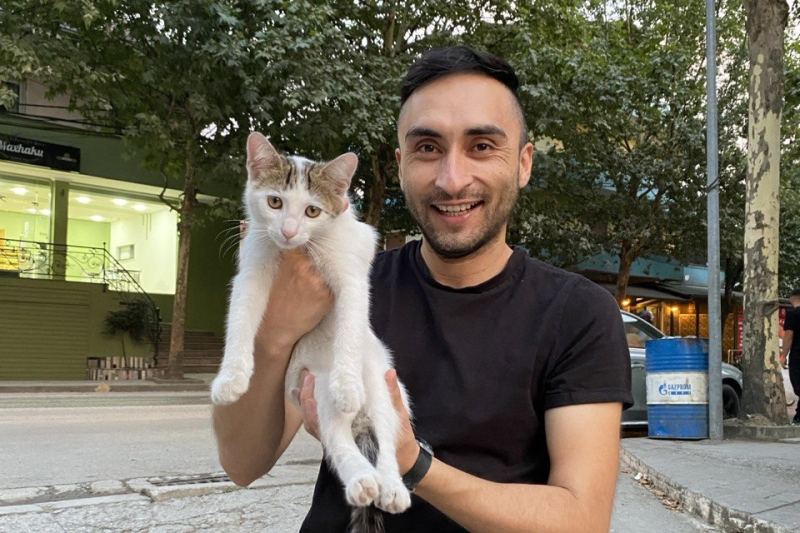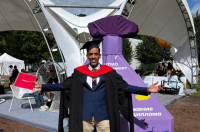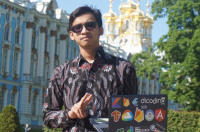Hello, welcome! Let’s start with an introduction. Can you tell us a little about yourself?
Thanks! My name is David Pincheira and I’m from Santiago, Chile. Right now, I’m enrolled in ITMO’s Foundation Program, where I’m learning Russian before starting my Master’s degree. My background is in system and network administration and I’ve always been passionate about cybersecurity, GNU/Linux, and optimizing hardware. I firmly believe that if a machine has power, you should push it to its limits! These days, my schedule is packed with studies, but whenever I get a free moment, I love exploring new places and trying different foods.
Santiago sounds like a fascinating city. What’s it like?
Santiago actually has a few surprising connections to Russia. For example, we have a salad called ensalada rusa, which is very similar to Olivier salad. And if you like cheburek, you’d love empanada de pino – it’s a bigger, even meatier version filled with seasoned beef, onions, boiled egg, olives, and sometimes even raisins. But one of the coolest things about Santiago is its geography. You can go skiing in the mountains and hit the beach – all on the same day!
What was your professional background before coming to ITMO?
Before ITMO, I worked on managing data center hardware and network infrastructure at Google. I also gained experience in the stock market while working as the lead sysadmin for the investment division of a large bank in Chile. At 22, I founded my own company (Nudra), which I still run today. Despite all this, I wanted to expand my knowledge in cybersecurity, and that’s what led me here.
Why did you decide to study in Russia?
I wanted to study abroad to gain international experience and Russia offers excellent education in computer science. ITMO in particular has a strong reputation in this field. Plus, Russia is more affordable than other study-abroad destinations, which made it a practical choice.
Originally, I was considering both ITMO and HSE (Higher School of Economics). I actually chose HSE first and started studying in Moscow but the pandemic disrupted my plans and I had to drop out. Now, I’m giving it another shot – this time at ITMO.
You’re currently enrolled in the Foundation Program. How has your experience been so far?
It’s been a mix of challenges and growth. The Foundation Program has really pushed me to adapt – not just to a new language but to a whole new way of life. It’s been tough at times, but I’m learning a lot and I’m excited for what’s next.
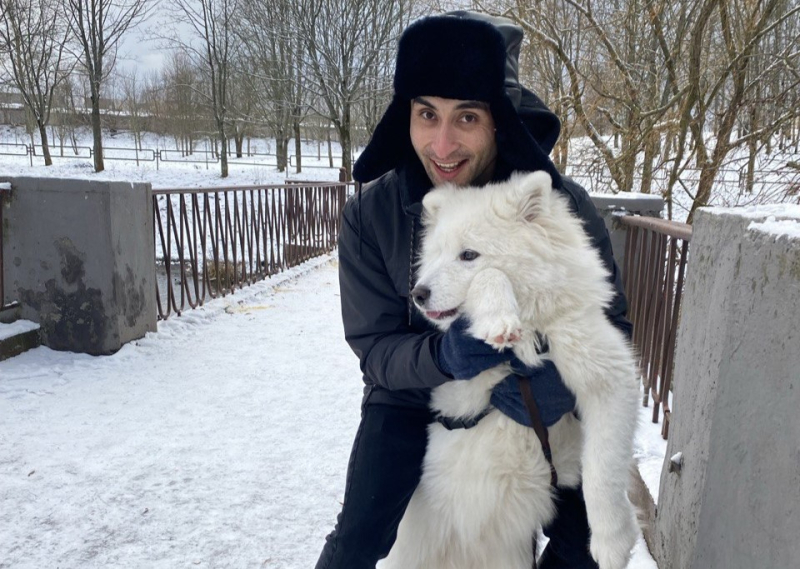
Photo courtesy of the subject
How are your language studies going thus far?
Learning Russian is an interesting challenge! The pronunciation and grammar are tricky, but I’m taking it step by step. What’s changed the most is how I interact with people. I’m naturally extroverted, but since I’m not fluent in Russian yet, I listen way more than I talk. And that’s actually been a great thing – I’ve met people with incredible startup ideas just by listening more.
What strategies are you using to improve your Russian? Any tips for fellow students?
I don’t have a super advanced strategy. I just repeat what I learn and try to understand it better. I spend hours reading textbooks and watching YouTube videos about Russian grammar. It’s not fancy, but it’s working! For fellow students, my advice is: don’t get intimidated. Russian can seem overwhelming at first, but little by little, it starts making sense. Stay consistent and you’ll see progress.
What has surprised you the most about life in Russia?
The level of enthusiasm and motivation in fields like system integration, AI, and business-driven technology. People here are really passionate about their work and that’s inspiring. Also, Russian friendships work differently from what I was used to. In Latin America, we form friendships quickly, but here, it takes more time. At first, I found that frustrating, but now I’ve come to appreciate it. Russian friendships are deep and genuine – they take time, but they’re built to last.
What’s a typical day like for you as a Foundation Program student?
Pretty packed! My day is filled with classes in computer science, math, and Russian. There’s a lot of information to absorb, so any free time I get is usually spent studying.
Have you traveled to any other Russian cities yet?
I’ve been to Kaliningrad and Moscow. However, I have a list of places I want to visit – mainly for the food! I tried a fish soup from Murmansk once and loved it, so now I really want to go there. Also, I’m curious about Tatarstan and the Ural region.
What’s your favorite Russian dish?
My favorite Russian dish is ukha (уха – a fish soup). It is hands down the best soup I’ve ever had in my life. I recommend you all to try it.
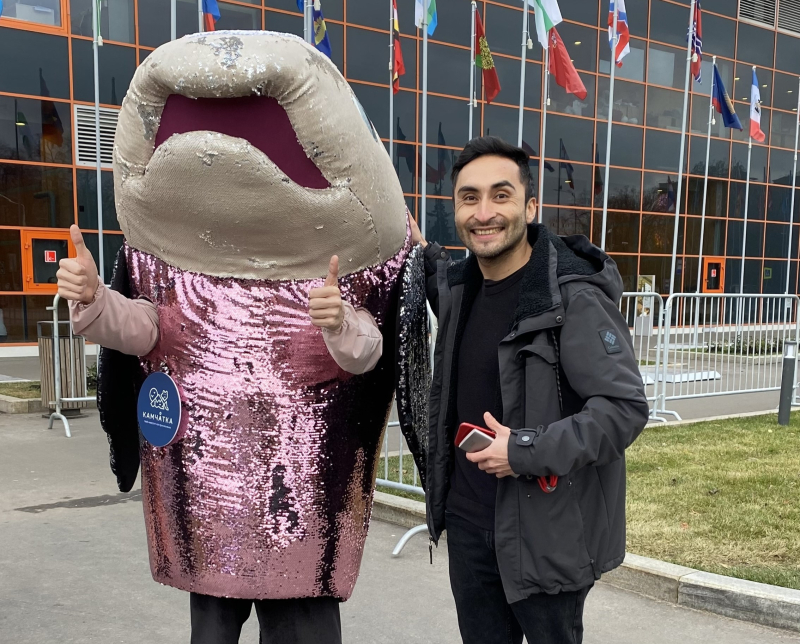
“I really like that fish soup – look, I also have a picture with a fish in Moscow,” comments David. Photo courtesy of the subject
What are your plans after completing the Foundation Program?
I want to study cybersecurity, but I haven’t made a final decision yet. Computer science is another possibility. Either way, it’ll be in the tech field.
What advice would you give to future ITMO students?
Studying abroad is more than just academics – it’s an adventure. You’ll grow in ways you never expected. Of course, there will be tough times and you’ll feel overwhelmed, but that’s all part of the process. The key is learning to handle challenges with emotional intelligence. Don’t give up at the first obstacle. You’re doing something incredible – keep going!
Finally, anything else you’d like to share?
If you’re thinking about studying abroad, you’re probably nervous. That’s normal. But trust yourself – you’re capable of amazing things. When I was making my decision, I reached out to former international students and asked about their experiences. Their advice was invaluable. So if you’re unsure, talk to people who’ve been through it. And then go for it!
